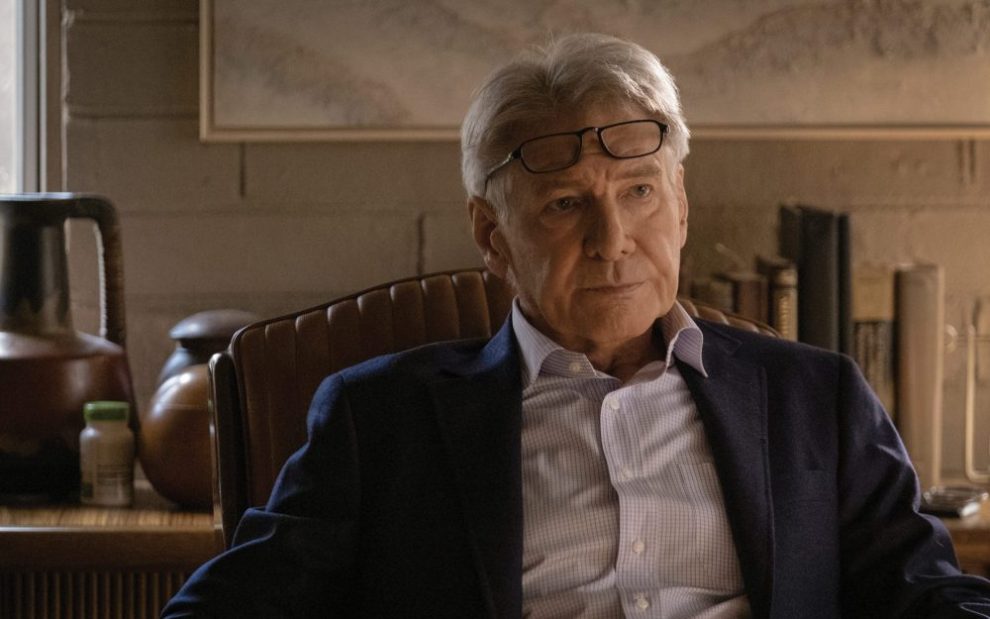Since its earliest days, television has profitably mined physicians, hospitals, and stethoscopes for a steady stream of reliably popular medical dramas. But therapists? Not so much.
All that sitting and talking and sitting and talking some more in long monologues interrupted only occasionally by the rare “um-hm” when the liveliest action sequence is the doctor uncrossing his legs just doesn’t make for riveting television.
But mental health is trending. The World Health Organization reports that the COVID-19 pandemic spiked a 25 percent increase in anxiety, stress, and depression worldwide. Mental health professionals say they’re experiencing unusually heavy caseloads, and a survey by the American Psychological Association shows that 6 out of 10 psychologists are currently fully booked and can’t make room for the new patients who keep calling.
It’s no longer the kiss of death for a celebrity, politician, or influencer to admit to seeking counseling and needing help—in fact, it often builds rather than diminishes a reputation. Heroes no longer must be godlike paragons. These days we rather prefer heroes who look like the rest of us. We are in an age of embracing our flawed humanity and connecting to one another through our imperfections.
Television programming is catching up, with varying degrees of seriousness and a seemingly shared message: It’s not just the patients who need healing and not just the therapists who provide the cures.
The new Apple TV+ series Shrinking is witty, touching, and fond of humans. We see inside a three-therapist practice and what life is like from the therapist’s side of the couch, addressing a daily sea of faces. There are quirky patients, frustrating patients, and annoying patients. And guess what? Therapists are human, too. Jason Segel (Jimmy) is grieving his wife and falling apart at the seams in peculiar ways, a therapist more in distress than his clients. His boss, Harrison Ford (Paul), struggles with Parkinson’s disease and an estrangement from his daughter, and Jessica Williams (Gabby) has her own grief and her own strange marriage. Jimmy breaks the glass wall of therapy and starts telling patients what he really thinks about them, accompanying them out into the world and coaching from the sidelines.
The plain talk isn’t actually so unprofessional—real-life therapist Terry Real created a highly successful couple’s therapy approach, Relational Living, based on taking sides and speaking plainly. The old model of objective therapist might be just that—aging. The therapist-in-my-pocket convention is silly, but it gets us out of the office and lets Segel be his compellingly poignant self in situations other than sitting in an armchair. Ford is cantankerous and hilarious, intense and layered, and a delight to watch.
In Hulu’s psychological thriller and limited series, The Patient, Steve Carell uncharacteristically does not make us laugh. He does, however, make us uncomfortable, curious, and disturbed. Psychotherapist Alan Strauss (Carell) awakens chained to a bed in a strange room. But this is no Stephen King Misery. It’s another pet therapist narrative (do we all want a personal therapist following us around?) with many intriguing, smart, provocative twists. Alan’s personal life is bleak and his patients not particularly challenging—except for Sam (Domhnall Gleeson), the serial killer who keeps Alan captive and counseling over takeaway curry. Surrendering his initial resistance to such an unethical premise, Alan enters into a troubling relationship with Sam, blurring professional and personal lines (well, he is living in his patient’s basement).
Other lines blur, too—who is therapist and who is patient, who is worthy of compassion and who is not, whether we can feel the pain of those we injure or if, by the act of injuring, we make ourselves into monsters. It’s an exploration of the limits and powers of empathy, of how and why we withhold our human compassion for one another, ranging back to the Holocaust and forward to the disharmony of unshared religious beliefs. The narrative evolves into a stunning series of statements, with minor characters rising into central emotional voices and disparate plot threads suddenly interlocking like the conclusion of a John Irving novel. It’s remarkable.
The Netflix film Stutz by Jonah Hill is perhaps the bravest of these therapy shows, not only taking the risk of showing what therapy is really like—physically static, ponderous, and cerebral—but actually delivering powerful and pragmatic therapy right to the audience. You will be a better person at the end of watching this. Hill interviews and shares the approaches of his real-life psychiatrist, New York Times bestselling coauthor of The Tools Phil Stutz, which include little drawings of simple visualizations that famously help Stutz’s patients—many of them Hollywood celebrities—cope with life.
Hill, who is dealing with the sudden death of his 40-year-old brother, gently explores Stutz’s own loss of a brother as well as Stutz’s advancing Parkinson’s disease. Hill’s transparency and accountability are extraordinary. He even brings his mother into therapy! Stutz has many answers and much advice, but it is his profound humanity and deep vulnerability that deliver the most powerful messages. The two men move us and make us better humans. Hill says on camera that he made this film to give as many people as possible access to Stutz’s tools he found so helpful. He succeeded.
This article also appears in the May 2023 issue of U.S. Catholic (Vol. 88, No. 5, pages 36-37). Click here to subscribe to the magazine.
Image: Apple TV+















Add comment